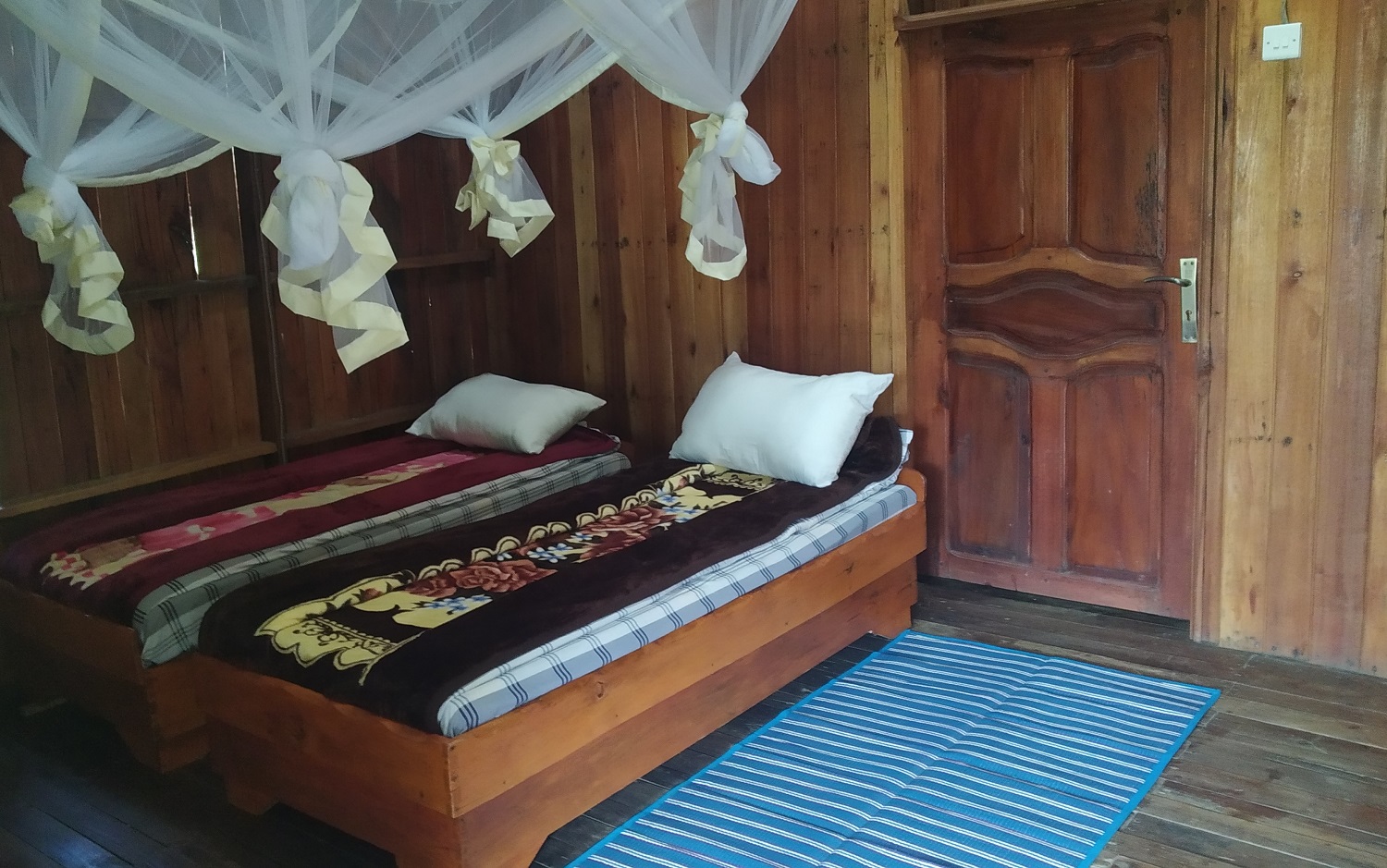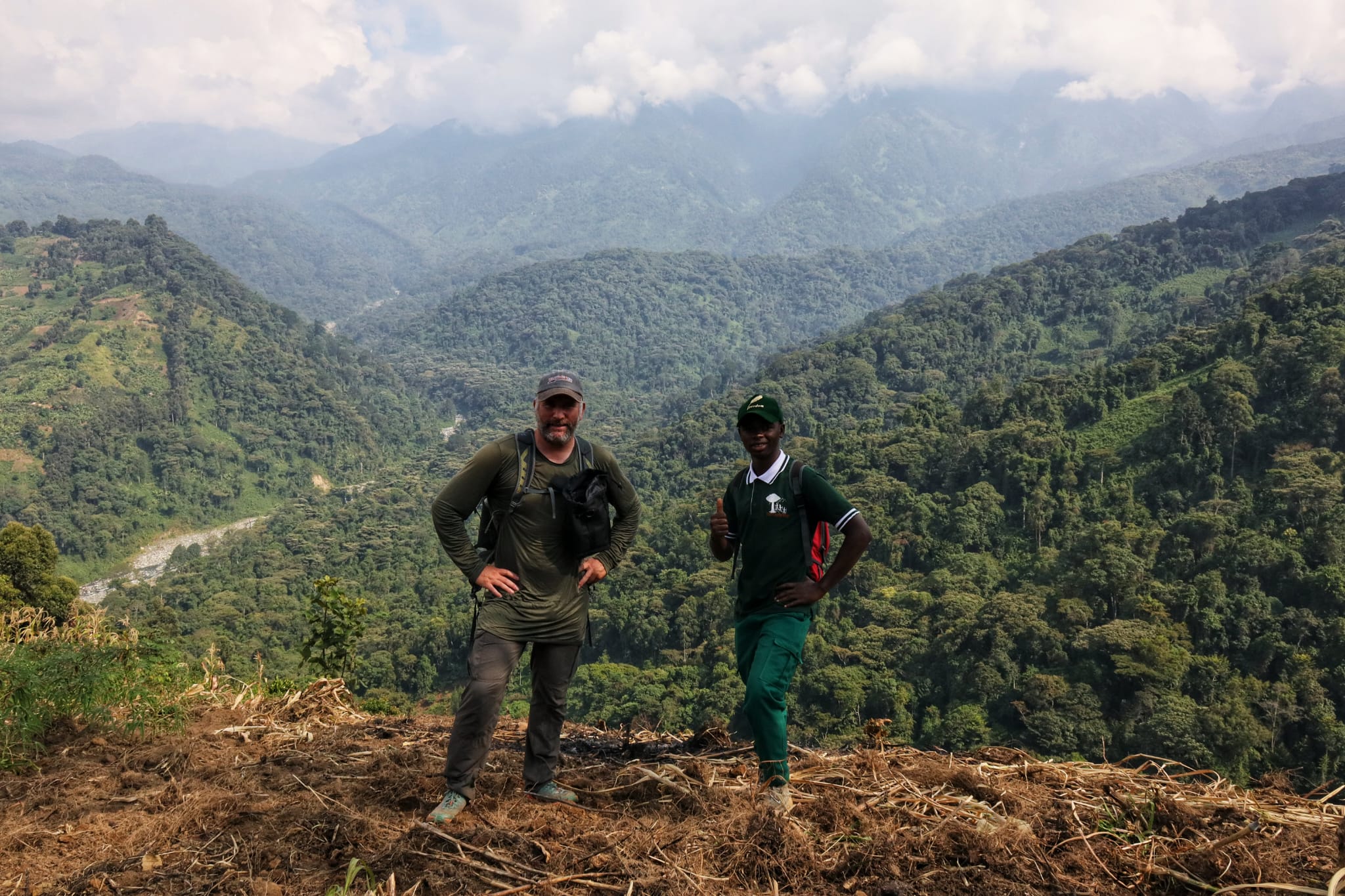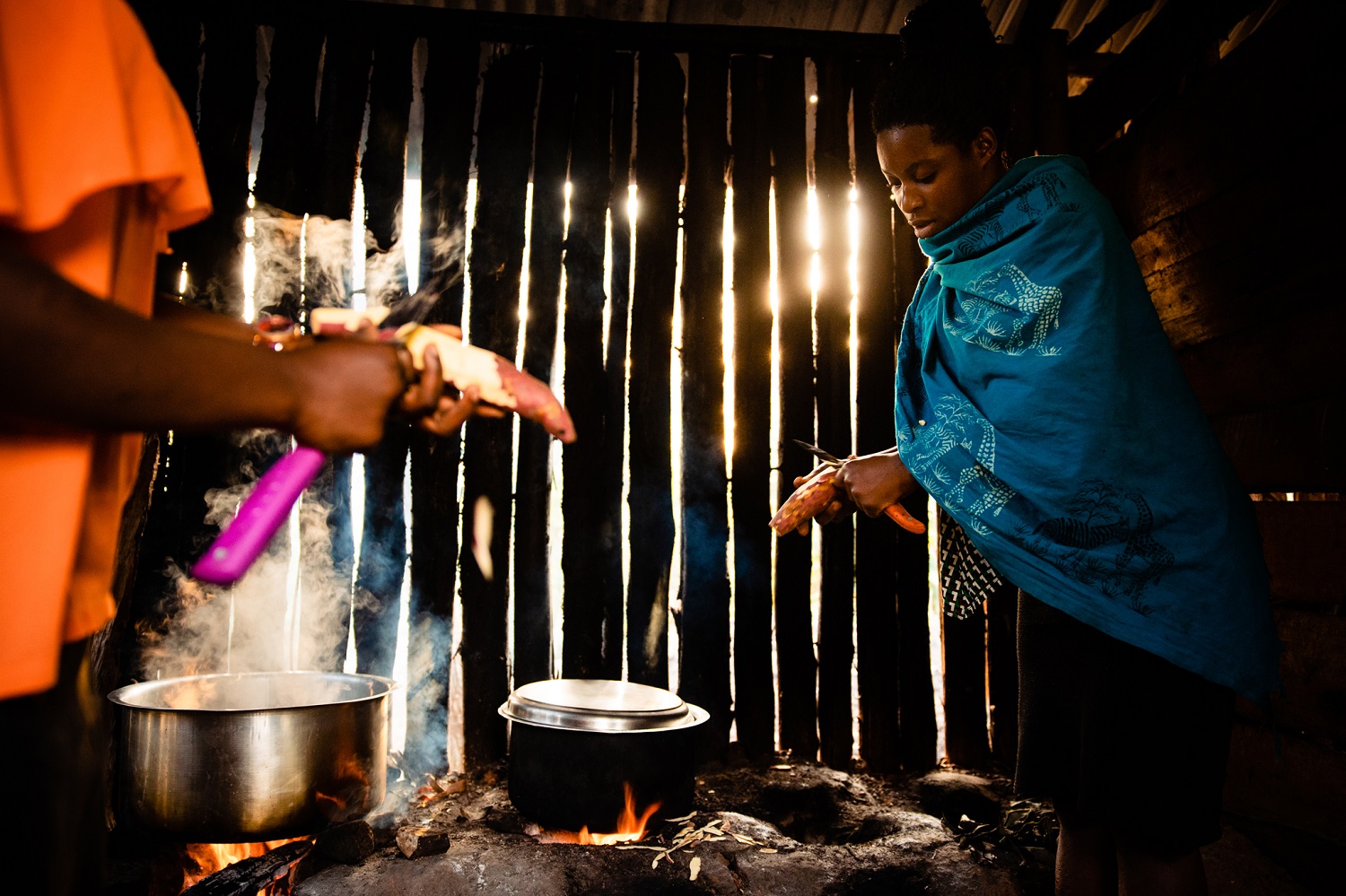Staying at Ruboni Community Camp gives you an opportunity to explore one of Uganda’s most beautiful rural communities. Ruboni is not just beautiful; it’s also a model for sustainable tourism in Uganda’s Albertine Rift Valley, an area of ecological wealth that’s hard to find anywhere else in Uganda.
Are you looking to travel green or counter your travel carbon footprint in simple and pleasurable ways that give you a full experience of Uganda? I can confidently say that a visit to Ruboni Community Camp answers all your sustainability and travel doubts.
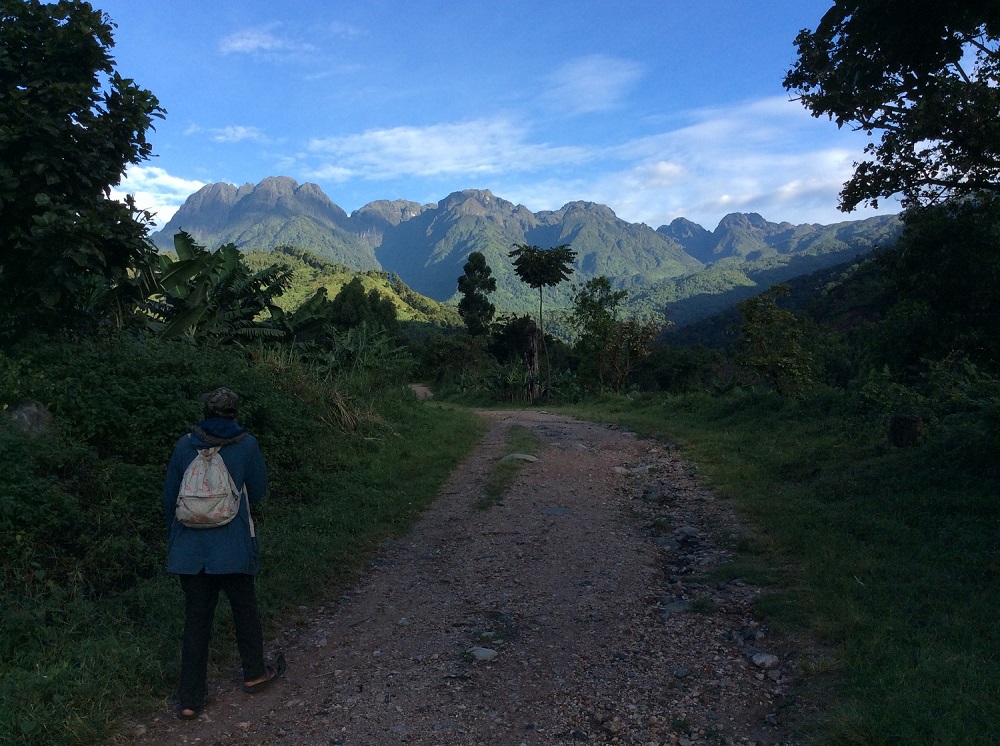
By staying at Ruboni Community camp you get:
- – A variety of comfortable accommodation rooms, including wooden cabins, bandas, and rooms
- – One of the best mountain views in the area
- – The most hospitable staff in Ruboni village
- – Delicious foods cooked with local ingredients
- – A long list of community and trekking options in the community without paying park entrance fees
- – A range of trekking activities inside the Rwenzori Mountains National Park
- – Information regarding traveling around Uganda at the Ruboni Community Visitors Center
- – Cashless payment options, including credit card or cash payments
Ruboni Community Camp has been in existence since 2002, making it the oldest community lodge in Ruboni village and the Rwenzori foothills. This makes Ruboni a guiding star for many upcoming community lodges in the Rwenzori region.
Besides the lodge, Ruboni Community has created a community natural forest reserve and other community tourism activities that engage guests who visit the area. These initiatives come with a complete benefit-sharing system developed with the local community involved in the tourism products.
Community activities you can do at Ruboni Community camp include:
- – Ruboni community forest trek
- – Ruboni hill trek
- – Ruboni village walk
- – Overnight hill trek
- – Tree planting experience tour
- – Ruboni coffee experience
- – Traditional dances and cultural events
- – Bakonzo traditional cooking experience tour
- – Vanilla farming experience
- – Banana wine making experience
All these activities can be done within a day and night of stay. However, it’s recommended to plan a stay of at least two nights in Ruboni so as to have enough time to arrive, experience, and depart without much pressure.
As part of the Ruboni sustainability success story, the Elephant Home is a sister tourism lodge next to Queen Elizabeth National Park, located 50km from Ruboni Community in a totally different setting. The landscapes, people, and climate are all different. As opposed to Ruboni located in the Rwenzori foothills, the Elephant Home makes an ideal base for wildlife safaris and Kazinga Channel boat cruises in Queen Elizabeth National Park.
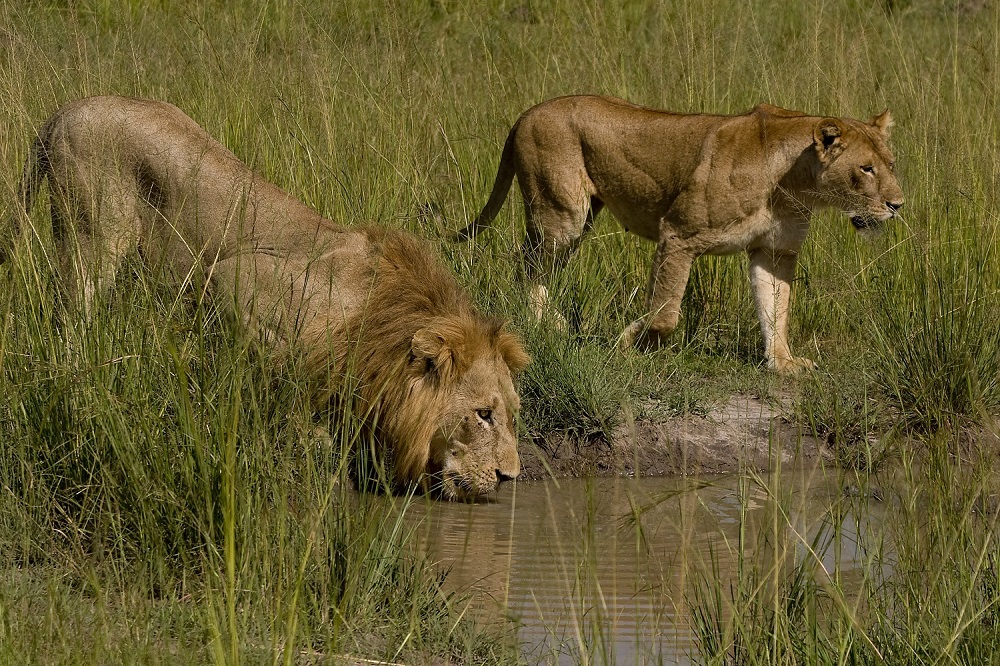
By staying at the elephant home you get:
- – Easy access by private car or public transport on arrival in Queen Elizabeth National Park
- – Close proximity to the national park gate on the morning of the game drive
- – Local guides who can arrange all your activities inside the park or community
- – A long list of community activities you won’t find anywhere else in the area
- – Several accommodation options, including self-contained rooms, open camping ground, and luxury camping
- – Delicious meals cooked with local fresh ingredients
- – Hospitable staff who will show you around the local village
It’s recommended to stay two nights at The Elephant Home to get the best out of your visit. You can view an itinerary for your two-day stay, which gives you an opportunity to explore the main activities inside the park and visit the communities if you like.
The main safari activities of Queen Elizabeth National park are:
- – Kazinga Channel boat cruise
- – Game drive on Kasenyi tracks
- – Chimp tracking in Kyambura
These three activities give you a full idea of the medley of wonders in the Savannah of Uganda. They can be done within one or two days if well planned.
Those willing to go off the beaten path will take the opportunity to visit the lower communities or do other wildlife activities, including:
- – Tree climbing lions in Ishahsa
- – Lion tracking experience
- – Mongoose tracking
- – Hippo census during certain seasons
Community activities you can do at the elephant home include:
- – Crater lakes tour
- – Kikorongo boda-boda safari
- – Kikorongo village walk
- – Visiting the equator line
- – Kikorongo traditional dance and percussion experience
- – Kikorongo youth briquette making and organic manure preparation
- – Various fishing tours
- – Agrotour showcasing cocoa, coffee, and vanilla growing experience
- – Katwe salt mining tour
- – Munyanyange and other birding tours, where it’s possible to view migratory flamingos during certain seasons of the year
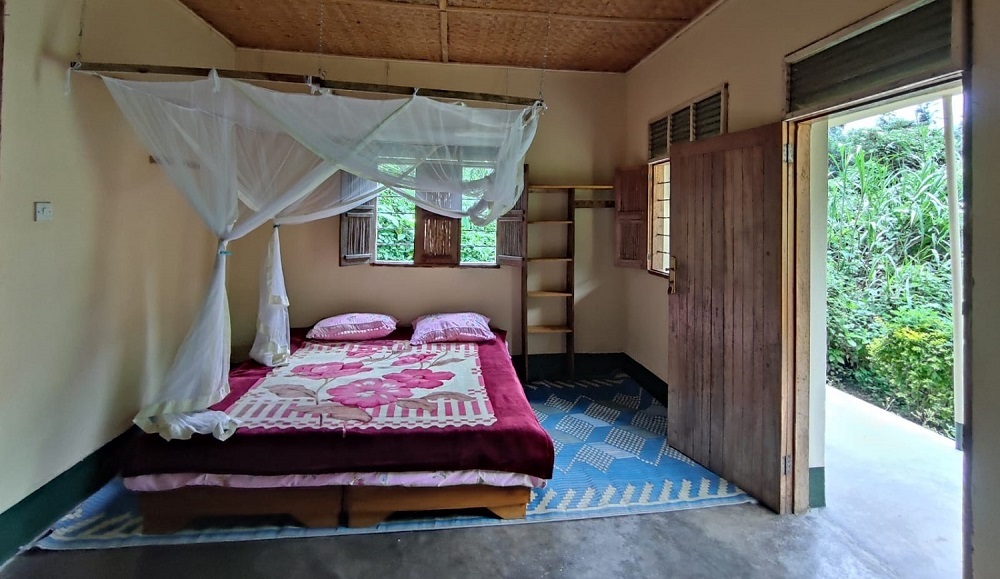
What makes Ruboni Community Camp unique and worth visiting?
Ruboni is a beacon of social change and environment conservation. Its community development and conservation work are done through tourism. The tourism and conservation interventions offer students, researchers, visitors, and the rest of the local community a clear opportunity for learning and inspiration.
Over the years, Ruboni Community Camp has positively impacted the local people and environment in numerous ways, including:
- – Child sponsorship
- – Tree planting
- – Indigenous and agro-forest conservation initiatives
- – Attitude change in tourism, conservation and development
- – Employment of the local community members (Especially youth and women)
- – Providing market for local produce
- – Mentorship for the youth and other local people
- – Benchmark for other new businesses in tourism and local income generating activities
- – Creation of a village Sacco serving the local community.
And many more invaluable benefits that can be learned by interacting with the locals when you visit. This is done by all profits generated by Ruboni Community Camp and its affiliates going back to the local community.
During a visit to Ruboni, guests have a chance to learn from the different projects supported or inspired by Ruboni Community Tourism Initiative. You will realize that the 20-year journey has been rich, as Ruboni has inspired and set examples for community tourism, conservation, and development initiatives around Uganda.
A visit to Ruboni could be everyones opportunity to be inspired and changed by this community tourism initiative started by a group of mountain farmers, yet influencing knowledge and success of all levels of people, from rural farmers to high-level academicians and innovators.
If you can imagine seeing Ruboni 20 years back, you will appreciate seeing The Elephant Home in its current young status. The Elephant Home has been formed as a replication of Ruboni Community Camp when it started 20 years ago.
The evolution of The Elephant Home is almost a reflection of the formation of Ruboni Community Camp 20 years back, when people came together to form this project due to a crisis, lacking an alternative source of income. We have an interesting way for you to be part of this history of Ruboni Community Camp.
The Elephant Home is in its young stages, replicating the best practices of Ruboni Community Camp. Visiting both lodges will be the best way to walk back in life and see the establishment of a community-owned and run tourism initiative working to empower local people and support conservation of the environment.
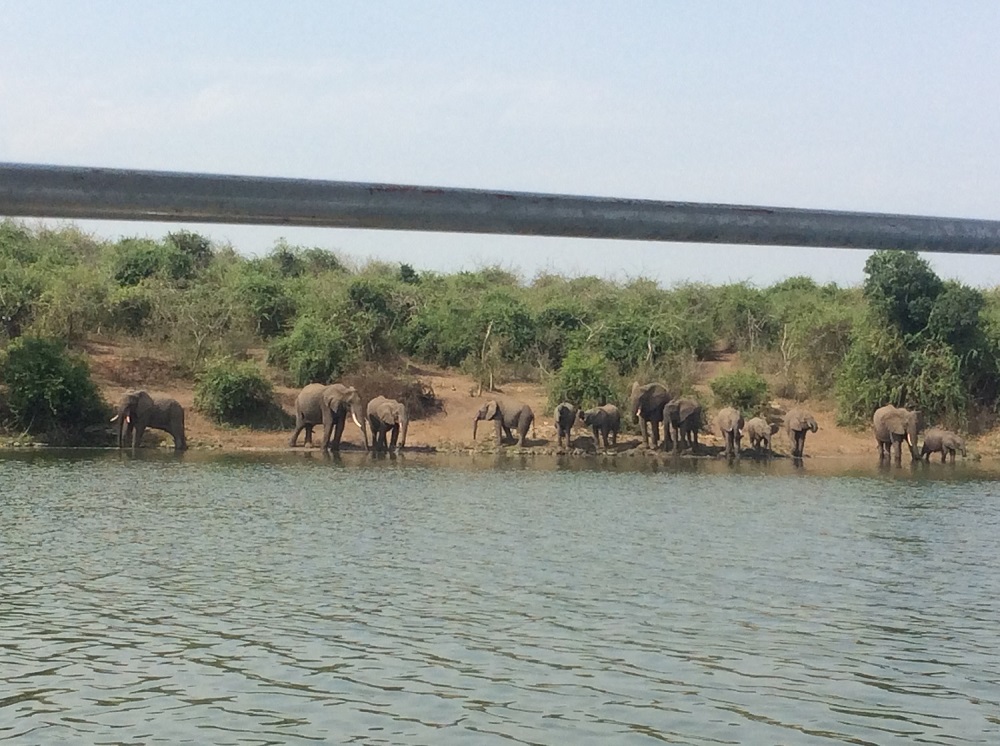
This project is located next to Queen Elizabeth National Park. The Elephant Home Lodge is located in Kikorongo, owned and run by the local community, with full support from the Ruboni team. The lodge currently boasts self-contained rooms, a restaurant, crafts shop, village tours, and is growing!
Why stay at Ruboni and The Elephant Home on the same trip?
- Taking a journey of supporting a community-owned development initiative and supporting sustainability during your trip. Supporting these twin lodges is well appreciated and adds value to local, national, and global sustainability efforts.
- Students and researchers can track the development of good practices in development by listening to both stories and building one good story out of the two. People who want to be inspired or inspire others in developing communities will benefit from learning this story of achievement.
- Comparing how community involvement in conservation and development around protected areas can have a great impact on voluntary natural resource conservation. Save money by getting discounts at one or both places if you mention it in advance. Volunteer opportunities are offered on cross placements at both projects, helping both volunteers and communities benefit from the exchange of knowledge.
- The Elephant Home will continue to benefit from cross-reviews from guests, helping Ruboni grow its initiatives while creating room for scaling good practices further. Generally, supporting either Ruboni or The Elephant Home supports sustainable travel. Supporting both amplifies your sustainability effort as you counter your travel carbon footprint.
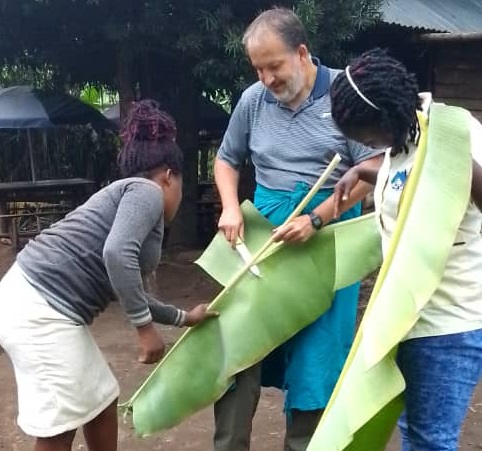
This happens when part of the income generated from both places is invested in sustainability. The sustainable projects being supported are too numerous to mention in this article. A few examples include tree planting, supporting the rural poor, market for local produce, conservation awareness raising, and many others you will find when you visit.
We are curious to know how many you observe during your next visit to these twin community tourism projects. Please share your findings and help this good effort fly higher and continue to shine for sustainability.
Who supported the establishment of Ruboni Community Camp?
We feel it is imperative to shine a light on the people and institutions that supported the establishment of Ruboni Community Camp. Below is the list of supporters who made the establishment of Ruboni Community Camp possible:
- – The local community, especially the 50 founder members of Ruboni Community Conservation and Development Program
- – The Environment Conservation Trust of Uganda (ECOTRUST)
- – The French Embassy Social Development Fund
- – IUCN Netherlands
- – The North Carolina Zoo
- – The Rwenzori Development Foundation (RDF-UK)
- – Ms. Sara Jane Moore from UK London
- – Fiona Sculley from UK London
You can book your next visit to one or both lodges today, by following this link.

